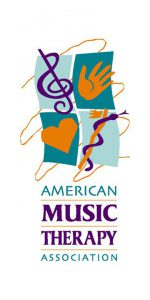This blog is the second in a series of profiles of different clinical health professions represented by Health Professions Network member organizations. These profiles are intended to give students and those looking at prospective careers in health care an accurate, professional perspective on different health care fields, specialties and careers. "A Day in the Life of a Music Therapist" was developed by the American Music Therapy Association (AMTA), an HPN member organization.
Table of Contents
- What is a Music Therapist?
- Goals and Rewards of Being a Music Therapist
- Becoming a Music Therapist: Academic Requirements

What is a Music Therapist?
Music Therapy is the clinical and evidence-based use of music interventions to accomplish individualized goals within a therapeutic relationship by a credentialed professional who has completed an approved music therapy program.
Music therapists assess emotional well-being, physical health, social functioning, communication abilities, and cognitive skills through musical responses. They design music sessions for individuals and groups based on client needs using music improvisation, receptive music listening, song writing, lyric discussion, music and imagery, music performance, and learning through music. And they participate in interdisciplinary treatment planning, ongoing evaluation, and follow up.
Music Therapy Work Environments
Board certified music therapists work in a variety of work settings, including but not limited to:
- Medical facilities, such as general hospital settings, hospice, oncology, physical rehabilitation, home health agencies, outpatient clinics, VA facilities, partial hospitalization and children’s hospitals or units.
- Mental health settings, such as child and adolescent treatment centers, psychiatric hospitals, community mental health centers, drug and alcohol programs, forensic facilities, and inpatient psychiatric units.
- Geriatric facilities, such as adult day care, assisted living, geriatric facilities, geriatric psychiatric units, and nursing homes.
- Developmental centers, such as group homes, intermediate care facilities, community day treatment programs, and state institutions.
- Educational facilities, such as children’s day care/preschool settings, early Intervention programs, and schools (K-12).
- Community Centers, such as Senior Centers, recreation centers or community music schools.
- Other settings, such as diagnosis-specific support groups, wellness and prevention programs, and work in a music retailer setting.
- Private practice settings, which commonly contract services in any of the facilities mentioned above.

Goals & Rewards of Being a Music Therapist
What distinguishes music therapy from other therapies is the use of music as the therapeutic medium. Music therapy practice requires a unique, specialized skill and knowledge set. Music therapists use their knowledge, skills, training, and experience to facilitate therapeutic, goal-oriented music-based interactions that are meaningful and supportive to the function and health of their clients.
Music therapists actively create, apply, and manipulate various music elements through live, improvised, adapted, individualized, or recorded music to address physical, emotional, cognitive, and social needs of individuals of all ages and ability levels. These components of clinical practice continue to evolve with advances in basic science, translational research, and therapeutic implementation.
When other healthcare and education professionals report using music as a part of treatment, it involves specific, isolated techniques, using one pre-arranged aspect of music or playing a music recording to address specific and limited issues. In contrast, the use of live music interventions demands that a music therapist not only possess the knowledge and skills of a trained therapist, but also the unique skill set of a trained musician in order to manipulate the music therapy intervention to fit clients’ needs and to address issues across multiple health domains concurrently.
Salary Information
According to the workforce analysis conducted by the American Music Therapy Association, the average hourly individual rate for music therapy ranges from $68.27 - $89.31. The average yearly salary for music therapists ranges from $48K - $120K. Salary and hourly rate information reflects variance based on years of experience and specialized trainings or designations.

Becoming a Music Therapist: Academic Requirements
Those who wish to become music therapists must earn a bachelor’s degree or higher in music therapy from one of over 80 American Music Therapy Association (AMTA) approved colleges and universities. These programs require academic coursework and 1,200 hours of clinical training, which includes a supervised internship. Qualified supervision of clinical training is required and coordinated or verified by the academic institution. An academic institution, AMTA, or both may approve internship programs. Clinical supervisors must meet minimum requirements outlined by AMTA Standards for Education and Clinical Training.
At the completion of academic and clinical training, students are eligible to take the national examination administered by the Certification Board for Music Therapists (CBMT), an independent, non-profit certifying agency fully accredited by the National Commission for Certifying Agencies (NCCA).
After successful completion of the CBMT examination, graduates are issued the credential necessary for professional practice, Music Therapist-Board Certified (MT-BC). To demonstrate continued competence and to maintain this credential, music therapists are required to complete 100 hours of continuing music therapy education during every five-year recertification cycle.
All board certified music therapists receive education and training in compliance procedures for state, federal and facility regulations and accreditation. They are trained and skilled to conduct music therapy assessments, draft and incorporate goals and objectives into treatment plans, specify procedures and define expected treatment outcomes, evaluate and make appropriate modifications and accommodations, and document the process utilizing standard tools. The skill set and competencies required of music therapists are outlined in the AMTA Professional Competencies and the CBMT Board Certification Domains.

